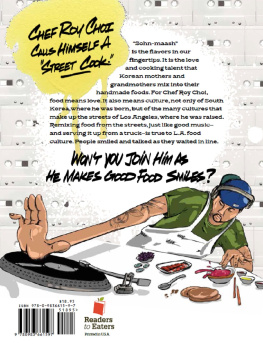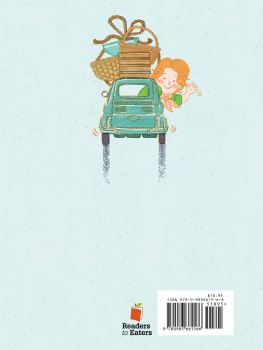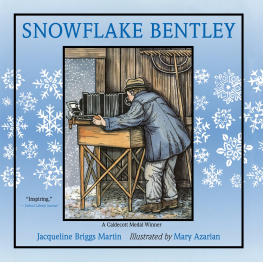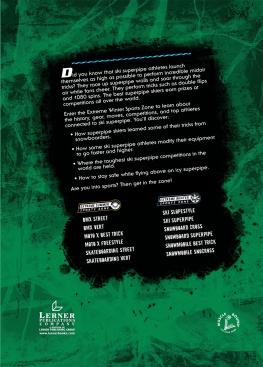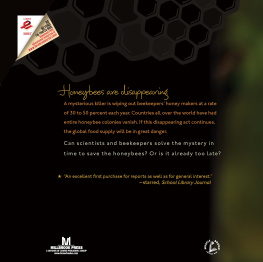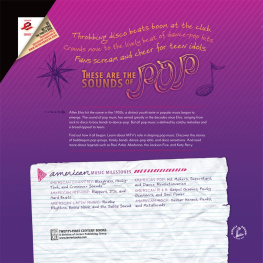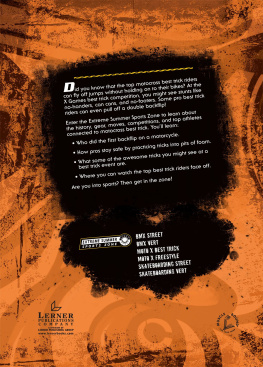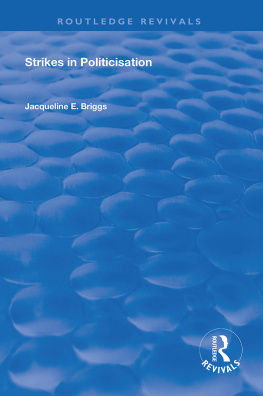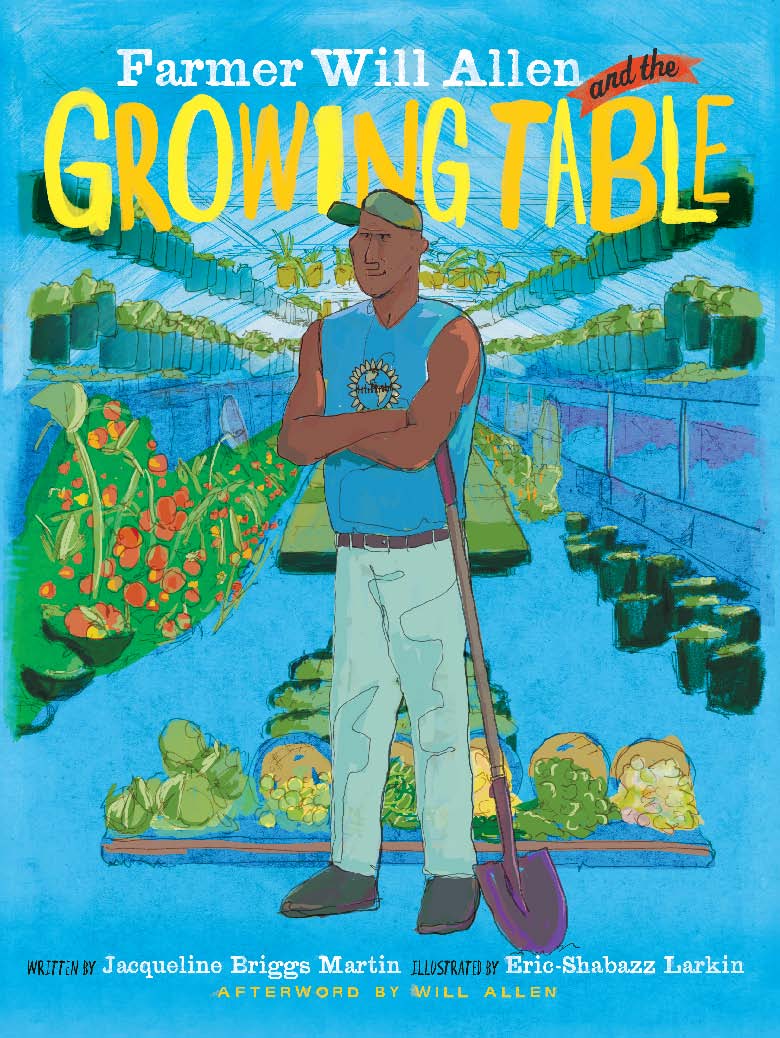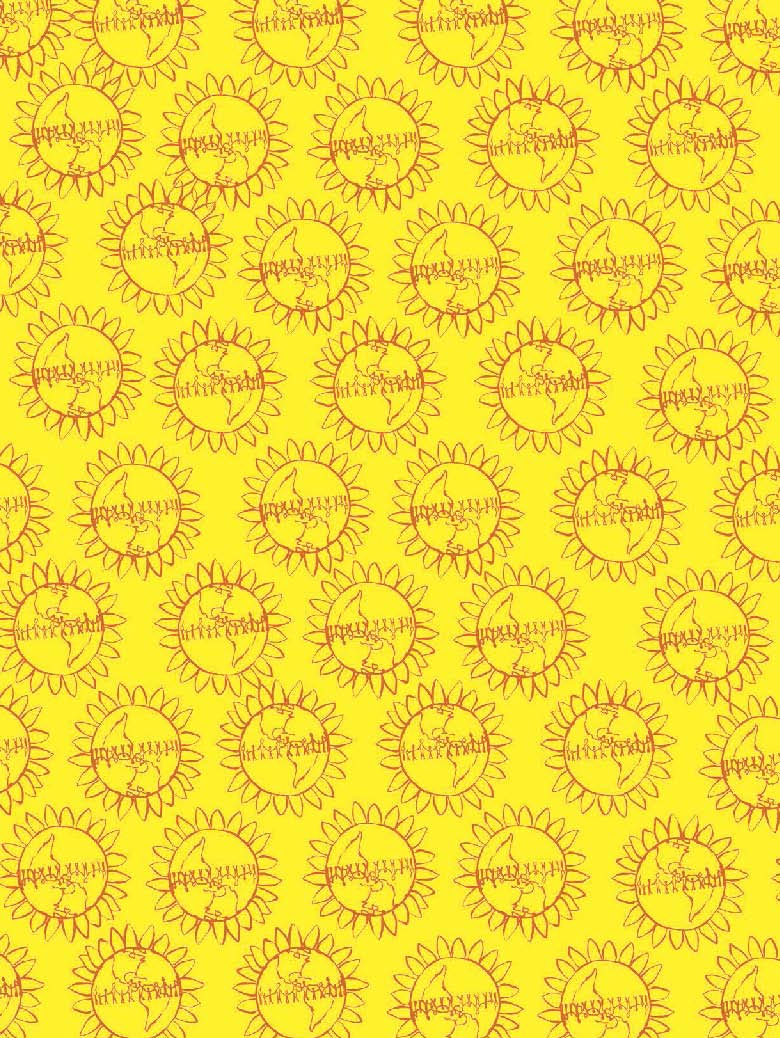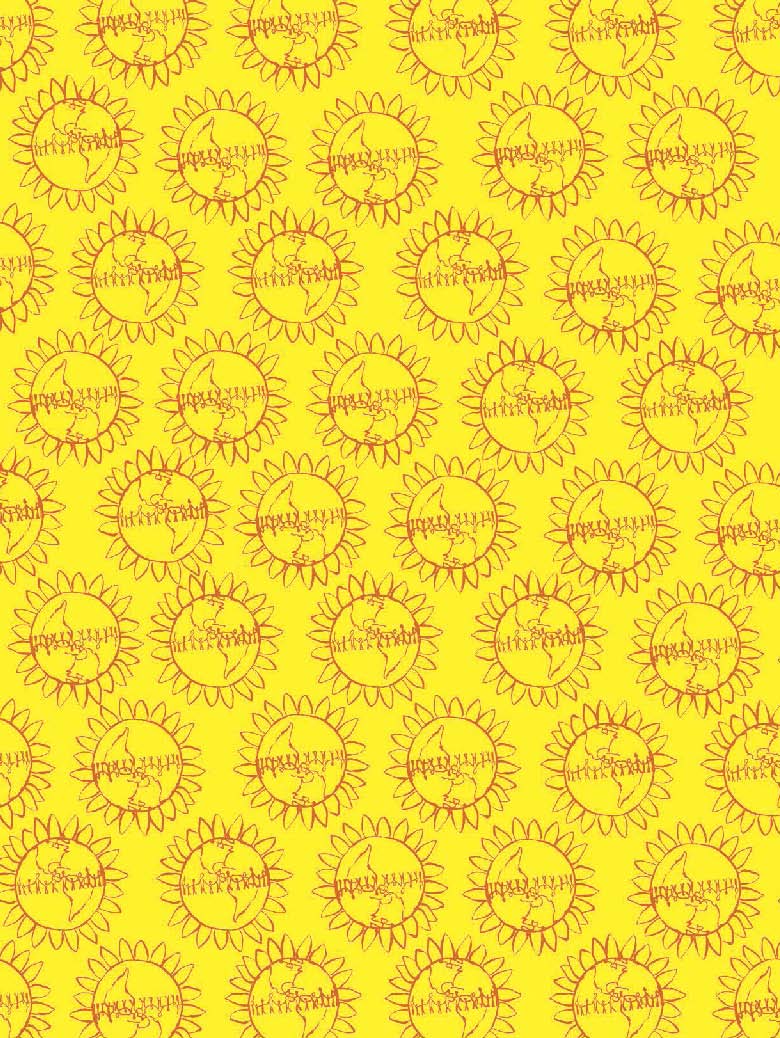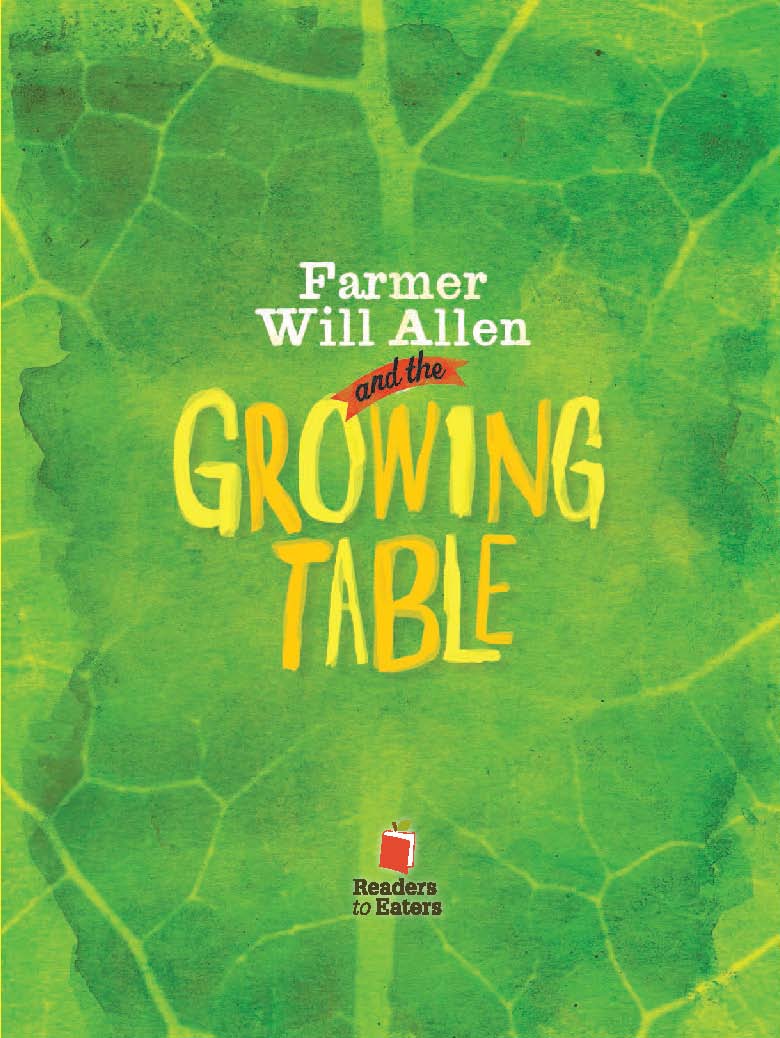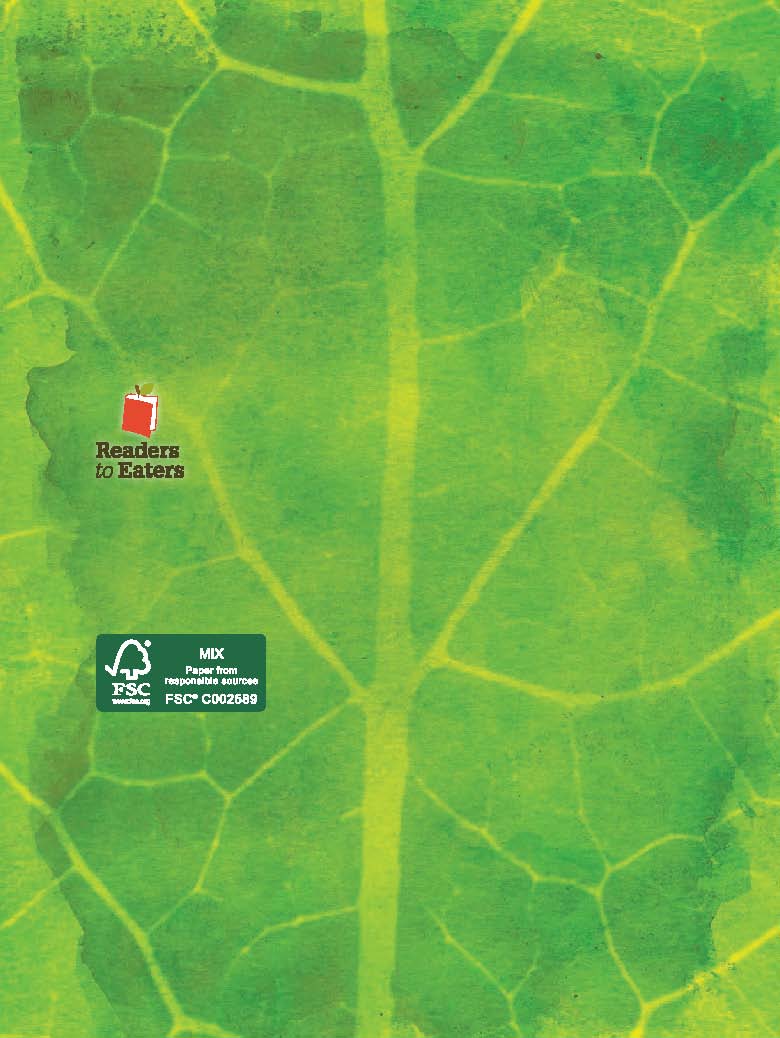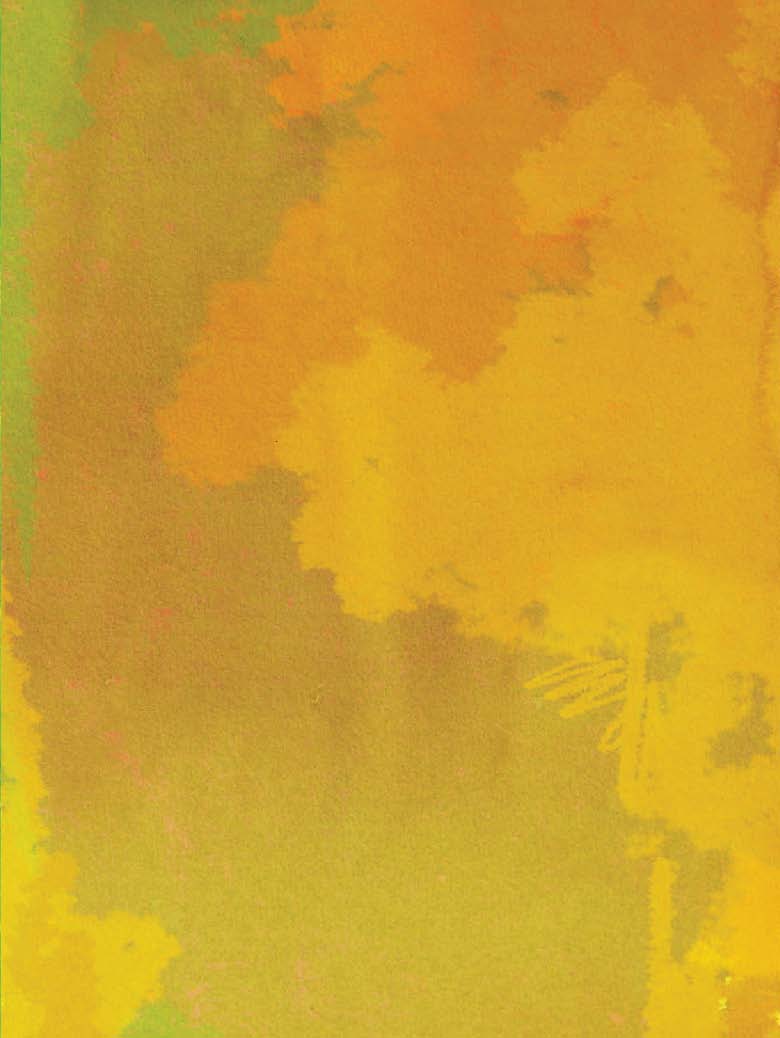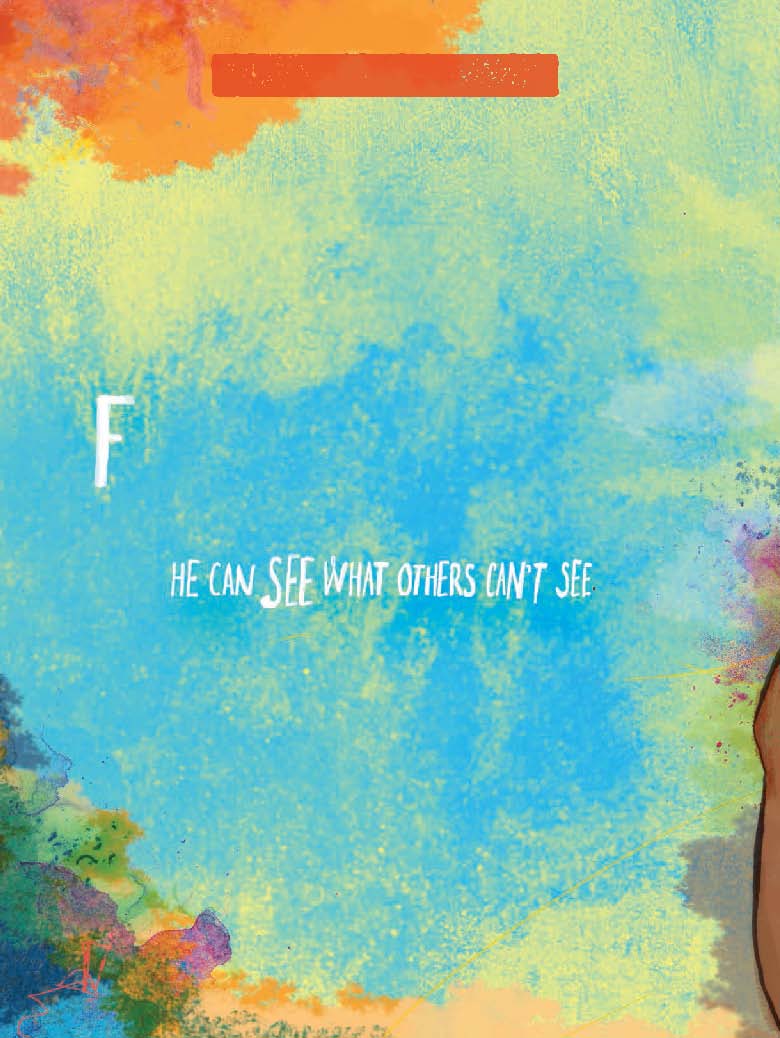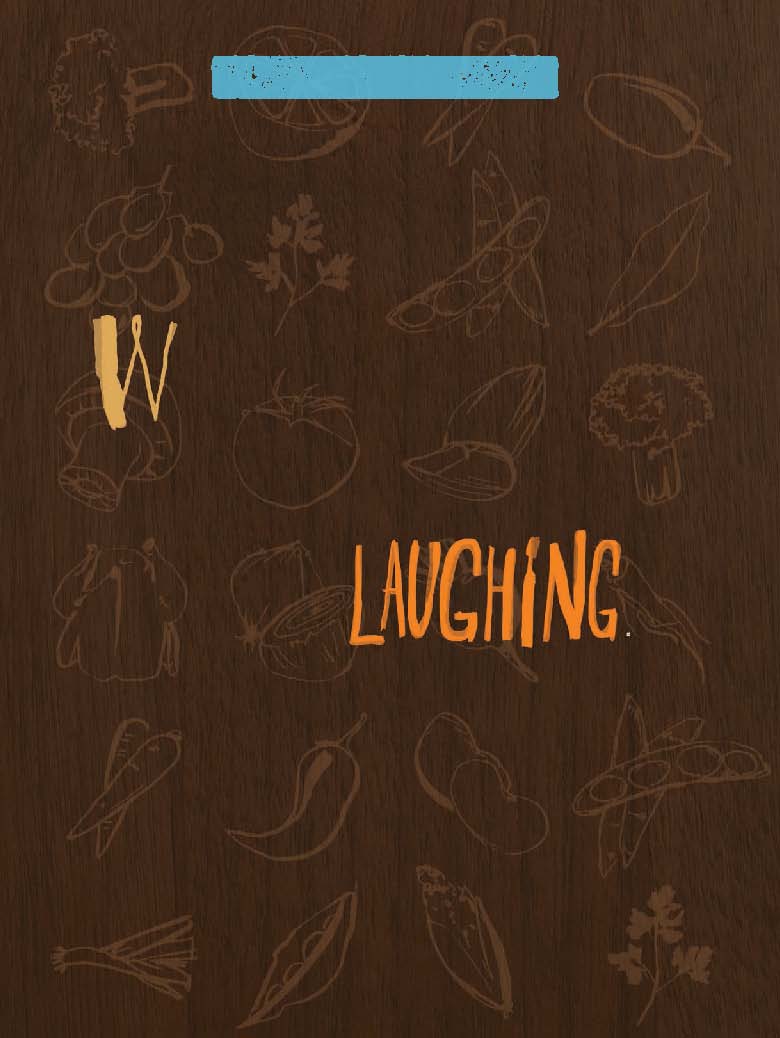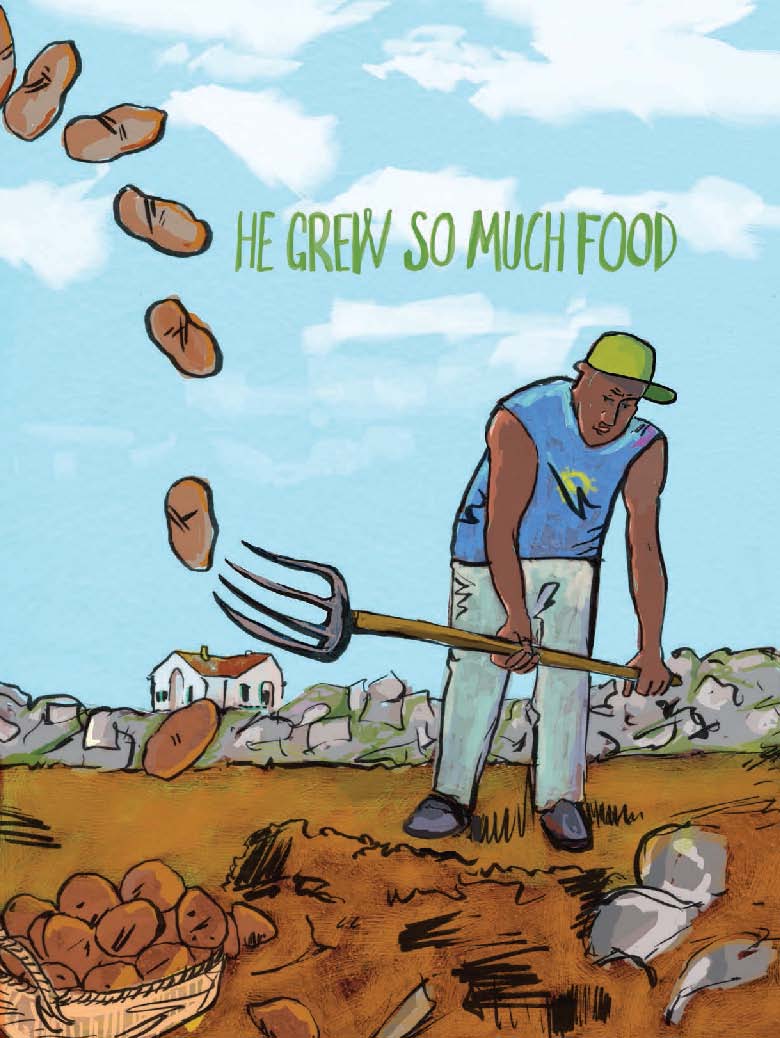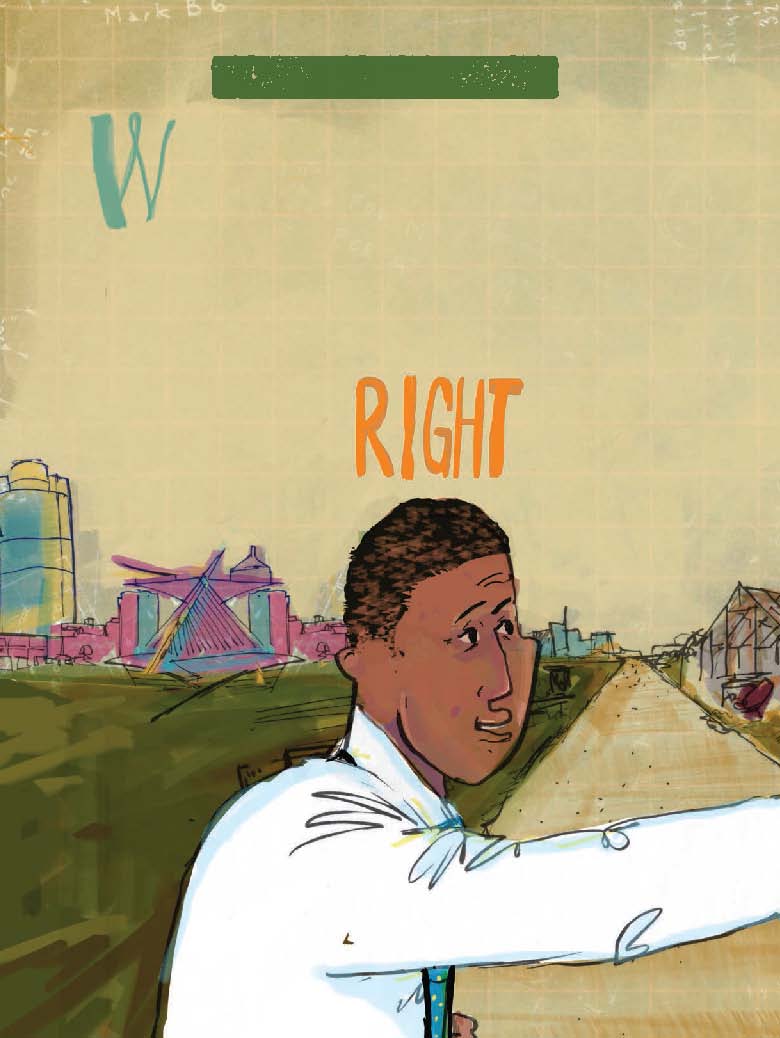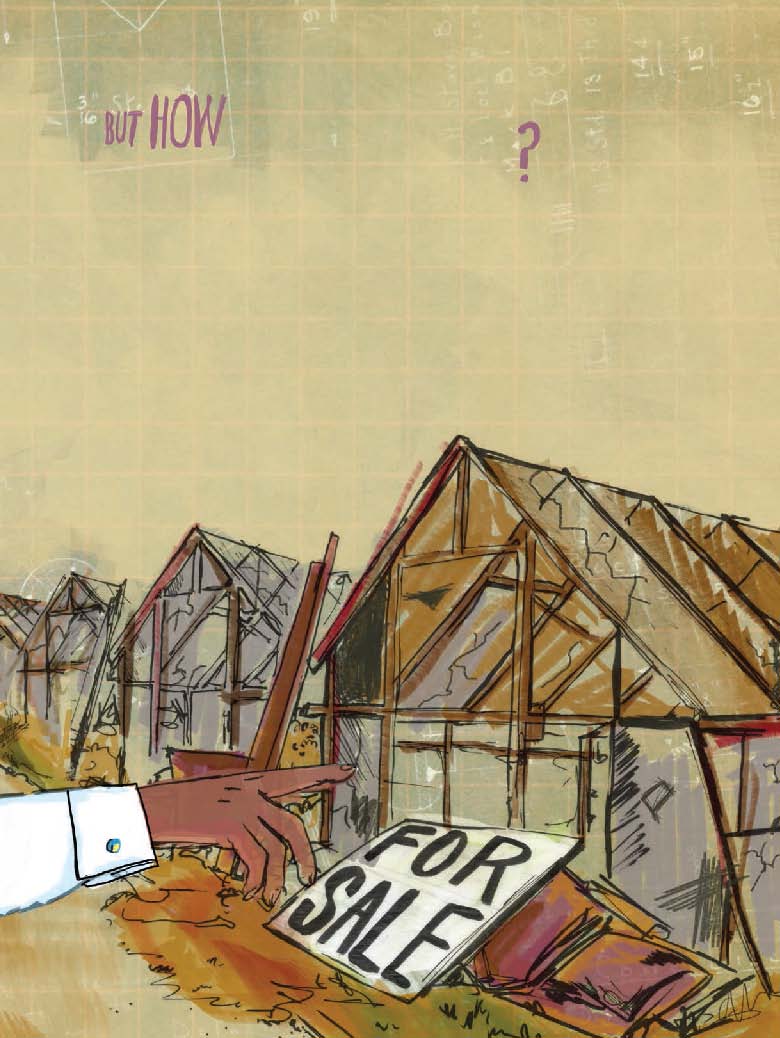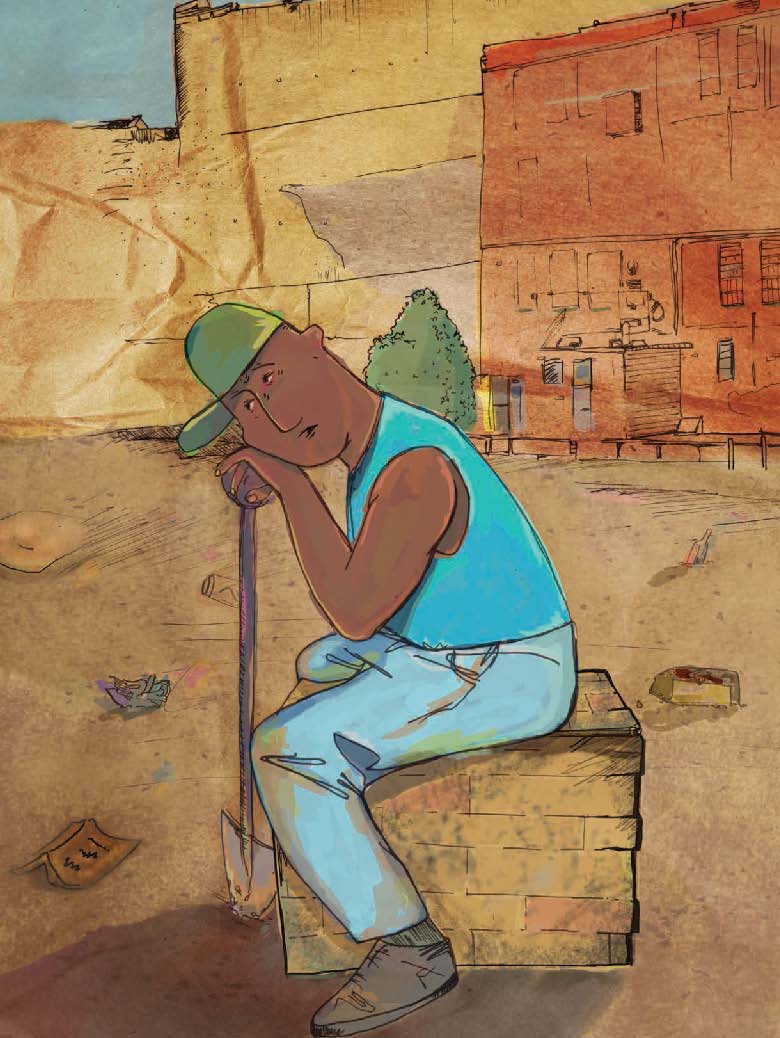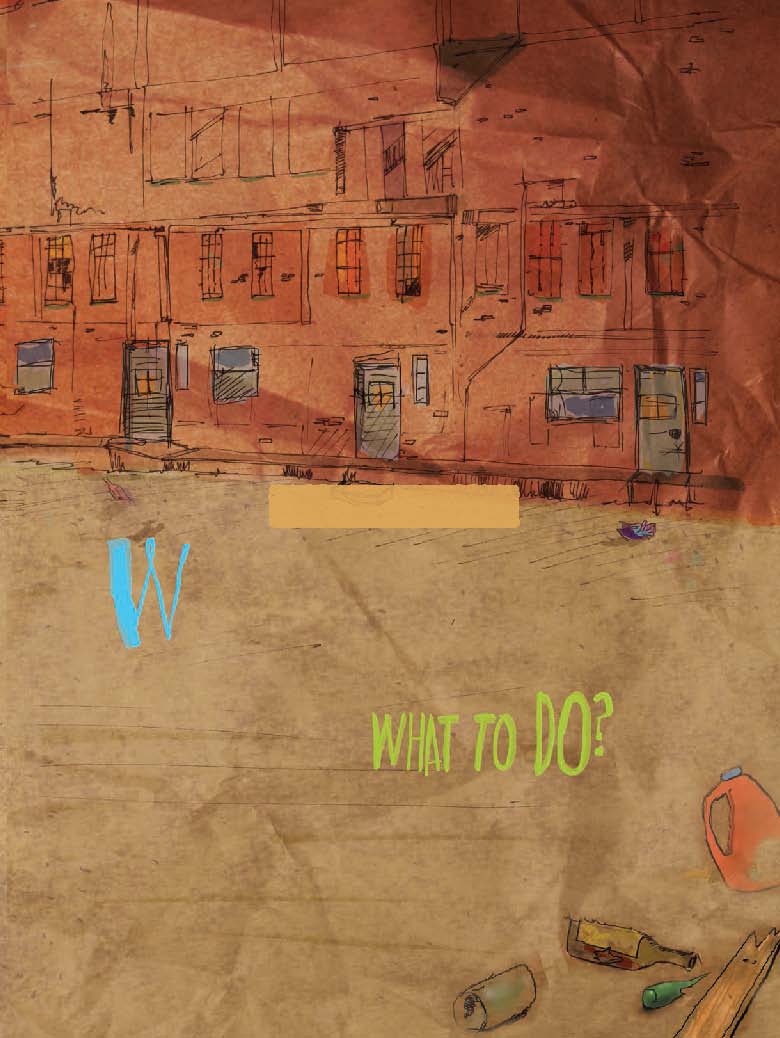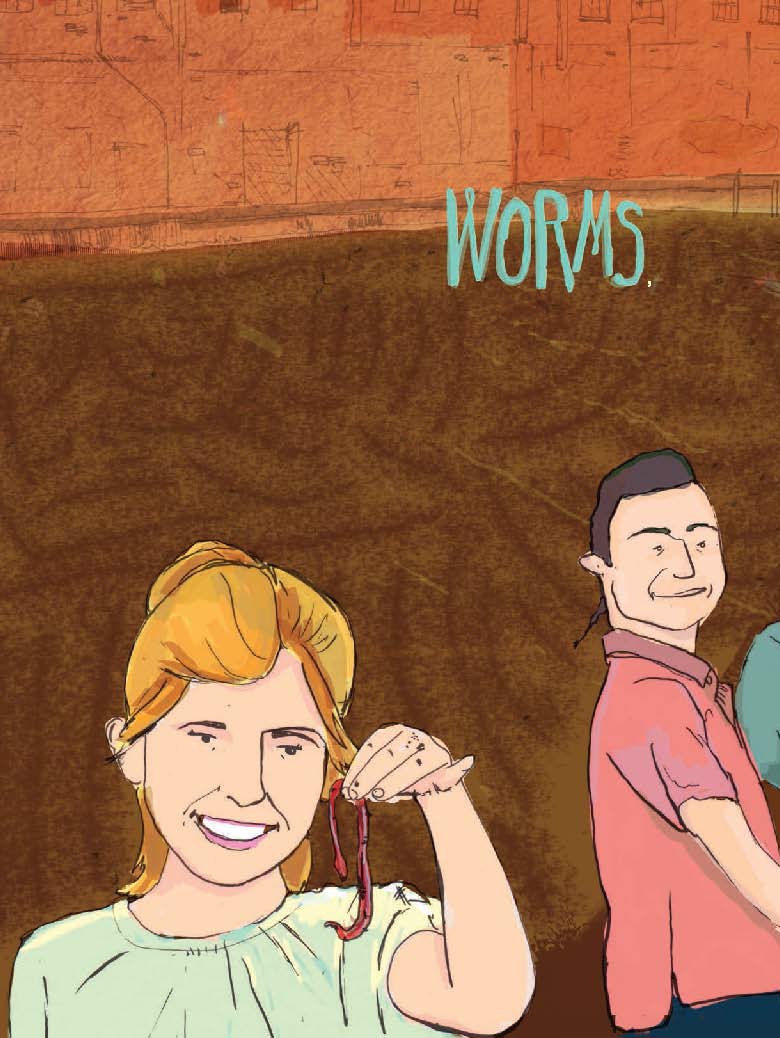WRITTEN BY
Jacqueline Briggs Martin
ILLUSTRATED BY
Eric-Shabazz Larkin
AFTERWORD BY WILL ALLEN
BELLEVUE, WASHINGTON
Text copyright 2013 by Jacqueline Briggs Martin
Illustrations copyright 2013 by Eric-Shabazz Larkin
READERS to EATERS Books
12437 SE 26th Place, Bellevue, WA 98005
Distributed by Publishers Group West
www.ReadersToEaters.com
All rights reserved. No part of this book may be reproduced, transmitted, or stored in
an information retrieval system in any form or by any means, electronic, mechanical,
photocopying, recording, or otherwise, without written permission of the publisher.
Printed in the U.S.A. by Worzalla, Stevens Point, Wisconsin (5/13)
Book design by Red Herring Design
Book production by The Kids at Our House
The text is set in Walden Font Co. Civil War Press Type No. 1, based on typography
found on recruitment posters and other printed material of the era.
The art is done in ink and pen, and markers to make an image or color,
then digitally matched with scanned textures and objects.
Photograph of Will Allen on page 31 by Darren Hauck
Photographs of Growing Power on pages 31-32 by Vera Chang
10 9 8 7 6 5 4 3 2 1
First Edition
Library of Congress Control Number: 2013937817
ISBN 978-0-9836615-3-5
To all those whove ever planted a seed and watched it grow
farmers who tend food and flowers and tend the earth. J.B.M.
To my God that gave me this body.
To my parents that fed it well.
To my wife that made it happy. E.-S.L.
FARMER WILL ALLEN
armer Will Allen is as tall as his truck.
He can hold a cabbage or a basketball in one hand.
When he laughs, everyone laughs, glad to be in his crew.
When he talks, everyone listens.
But some say the special thing about Will Allen
is that
Are they right?
When he looked at an abandoned city lot
and saw a huge table heaped with food, was he right?
THE KITCHEN TABLE
hen Will Allen was a boy
bowls of peas, greens,
and his favorite lima beans with ham
covered the kitchen table.
My mother often fixed enough food for thirty, Will says.
We never had a car or a TV, but we always had good food.
He remembers people whod come to dinner
tired and drooped
and leave
Wills family grew most of their food.
Will loved the food but hated the work.
He planned to quit on
,
,
leave those Maryland fields for
basketball or white- shirt work.
And he did.
He graduated from college
and moved to Belgium to
play professional
When a Belgian friend asked him
to help dig potatoes
Will realized he loved digging in the dirt.
that he and his wife Cyndy covered
their kitchen table
with Thanksgiving dinner for
a team of basketball friends.
A NEW KIND OF FARM
hen Will was done with basketball,
he worked a white- shirt job in Wisconsin
and found time to grow vegetables
on Cyndys parents land.
But Will wanted his own place.
Hed seen that fresh vegetables
were as scarce in the city
as trout in the desert.
Will believed everyone, everywhere,
had a
to good food.
could Will farm
in the middle of pavement and parking lots
One day, driving in Milwaukee,
Will spotted six empty greenhouses
on a plot of land about the size of a large supermarket,
FOR SALE!
He could see kids,
whod never eaten a ripe tomato,
never crunched a raw green bean,
sitting at his table, eating his vegetables.
Will Allen bought that city lot!
THE DIRTY SOIL
ill had a start on his table. He had the land.
But the table was empty.
The problem was Wills soil
dirty with chemicals and pollution.
He had no money for machines
to dig out the bad soil,
for truckloads of good soil.
In Belgium, Will had learned to
make good soil with food garbage.
They called it composting.
But he needed lots of garbage.
He asked his friends to save food waste
apple peels to old zucchinis.
Will collected those scraps in big white buckets
and dumped them into piles.
He added
hay,
leaves,
newspapers,
red wiggler
water.
Every now and then he turned the piles
to get air into the mix.
Neighborhood kids stopped by to ask what he was doing.
Will told them about the piles
and the red wiggler worms
that would help the garbage become compost.
The kids came back day after day to help.


